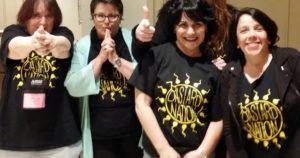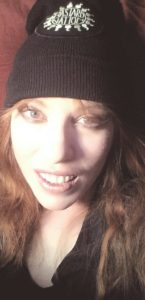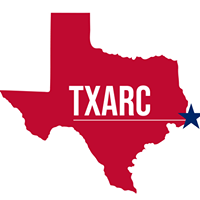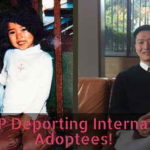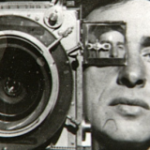By Suzanne Curley. STAFF WRITER
A FORTY-something friend of mine brought me to tears a few years back when, gazing at the face of her newborn child, she said, “It’s the first time in my life I’ve seen someone who looks like me.” Given up as an infant by a teenaged unwed mother in the Midwest, she had been adopted by a couple who lived many hundreds of miles away.
“When most people look in the mirror, they see whoever they look like in their family,” says 31-year-old Bohemia resident Wendi Springer, who was adopted when she was 10 months old. “When an adoptee looks in the mirror, they see a blank.”
Unless, that is, they’ve undergone the arduous process of unearthing documents to help them piece together their heritage. As in all but three states, records are “sealed” in New York. But the state has a mutual consent registry in which individuals searching for a birth mother or child can place their names and – if the person being sought also has registered – receive access to their records.
Adoptees trying to find their birth fathers are often frustrated by a lack of a paper trail. Generally, birth mothers were discouraged by adoption agencies from recording the fathers’ names so as not to complicate the adoption process.
“There is no other situation in this country in which adults do not have access to information about themselves,” says Joyce Maguire Pavao, author of “The Family of Adoption” (Beacon Press, $22). Pavao, an adoptee, directs the Center for Family Connections and founded PACT (Pre / Post Adoption Consulting Team), both in Cambridge, Mass.
To find her mother, Springer, who works for a media company in Islandia, used the Internet, a support group, a private investigator and a lawyer who specializes in adoption. Over the years, her repeated requests for information from the agency that handled her adoption had been ignored.
“I first contacted them, looking for information, when I was 12,” says Springer. “And the social worker gave me a few paragraphs of information about my mother – all of which turned out to be lies.” Between then and the year she turned 18, Springer says she contacted the agency 10 times, to no avail. Meanwhile, her birth mother had been trying to find her through the agency, but was told – incorrectly –
that at the time of adoption, she had relinquished the right to any future contact with her child.
“My adoptive mother also called the agency, knowing how unhappy I was. They weren’t helpful even then,” Springer recalls. “They told me I was lucky to have adoptive parents, and that I could have lived a much more horrible life. Finally, I threatened them with a lawsuit.”
Adoptees like her, she says, will do whatever it takes to learn more about their heritage. At age 18, Springer felt strongly that she “had to know more” and began digging on her own. After a year, she succeeded in finding out her birth mother’s last name – but then came to a dead end. So she borrowed money from her adoptive parents – who were completely supportive of her attempts – to hire help from David Kirschner, a Merrick attorney and adoption specialist. Finally, in 1997, she learned where her birth mother was.
Adopted at age 2, adoption counselor Betty Jean Lifton is the author of “Journey of the Adopted Self: A Quest for Wholeness” (Basic, $12.95) and “Twice Born: Memoirs of an Adopted Daughter” (St. Martin’s / Griffin, $13.95), in which she writes that her questions about her origins began in earnest after she found a well-hidden birth certificate in her parents’ desk as a young girl:
“It did not occur to me then to wonder why the certificate did not have my original name. If I had lived two years with my natural parents, I must have had a name. It was not until I was an adult that I learned that when a child is adopted, its birth certificate is amended with its adoptive parents’ name. History is rewritten. The original certificate is sealed away in court files and only the amended one is ever issued to the person. The adoptee, no matter what age, even should he live to be over ninety like Picasso and George Bernard Shaw, cannot be old enough to know his real name.”
Although not every adoptee wants to find the parents of origin, there is an increasing public outcry against making the effort harder by denying adoptees access to their records. “We all search for ourselves in various ways,” says Pavao. “We visit the ancestral lands and homes of our grandparents. We look within us and around us to find out who we are and what our purpose is. This is true for everyone. The search, for adopted people, is thwarted by closed records and legal fictions – false birth certificates.”
Sealed records also make things difficult for adoptive parents who would like to share information with their children. “As adopted children grow, they begin to wonder more and more about the story of their lives. They may ask questions, and often . . . their parents don’t have answers,” writes Pavao. “If, at the time of adoption, the parents had no desire for more information, they often feel differently later, as their child begins asking more and more questions. It is the right and responsibility of the parents to find the information that will be the truth for that child and . . . convey it in ways that make sense to their child at his particular developmental stage.”
“I am most interested in the best interest of the baby and child, not for just one moment in time, but for all the moments of that child’s lifetime,” adds Pavao. “Adoption is not an event. Adoption is not a snapshot in time. It is a moving picture that goes on through this life and into the ones that follow.”
Searches don’t – as is often assumed – imply that the adoptee finds fault with the adoptive parents, says Pavao, who was adopted as an infant. “I love and cherish what each set of parents gave to me, and especially what each of my mothers endured and imparted,” she adds. “But I refuse to have secrets, and I work to change a system that perpetuates them.”
In July, 1997, Springer was reunited with her birth mother in California. “It was the best day of my life. For the first time in my life I saw someone who resembled me,” she recalls. “Now, whenever I look in the mirror, I see her, too. And that makes me very happy.”
`Nation’ of Adopted Kids Earns a Hard-Won Birth
A NATIONWIDE GROUP fighting legal discrimination against adult adoptees – called Bastard Nation – began two years ago as a lively Internet forum. “So many of us grew up with feelings of shame – it’s been good for people to laugh about it, to say, `OK, we are bastards – so give us our due,’ ” says spokeswoman Cynthia Bertrand Holub, 50, who was adopted when she was 10 months old.
Gaining access to original birth certificates and adoption decrees is the 1,500-member group’s goal. Using “bastard” in their name would, members hoped, take away the word’s sting. “We took a cue from Queer Nation, the gay and lesbian activists: Our aim is to remove the word’s shameful aspect, shame being the reason why adoption records were sealed in the first place,” says Holub, a Philadelphia librarian and mother of two.
The group’s founders – Marley Greiner, Shea Grimm and Damsel Plum (who grew up in Jackson Heights) – focus on obtaining adoptees’ rights to records sealed by the states where they were adopted.
“Most people aren’t aware that we aren’t allowed to see our original birth certificates,” says Holub. “Children were released to adoptive parents with brand-new, falsified birth certificates – the idea being that the family was taking this child home with a whole new beginning, a clean slate.
“Regardless of how much we may love our adoptive parents,” she says, “we weren’t born to them, and these documents are false. We’re just saying we have a right to the real thing, just like everyone else.”
Some adoption agencies appear to be in agreement. Rony Diamond, director of post-adoption services at the Spence-Chapin Agency, of Central Islip and Manhattan, says her agency recently came out in support of adoptees over the age of 18 having access to their original birth certificates.
“We are very much in favor of adoption reform. Times have changed,” Diamond says. “The laws that used to govern adoption reflected the conditions of years ago – they don’t really apply today . . . In times past, things were much more secretive. In our society then, to be an `unwed mother’ was something shameful. A woman would be sent away to have her baby in secret – it was a shame, and it wasn’t talked about.
“The laws were originally designed to protect the privacy and the identity of all the parties involved from the eyes of society at large,” adds Diamond, “but not from one another. It wasn’t about secrecy, but about privacy. But now those `protections’ are no longer so protective.”
Some adoption agencies fear open records would discourage mothers from putting their children up for adoption or would complicate the process. Conservative religious groups also oppose open records, concerned that more abortions would result – even though this hasn’t proved true in places such as Kansas and Alaska, or England, where open records are the norm.
For Holub’s organization, adoptees’ search for birth parents is beside the point. “We are not about reuniting people and their birth parents,” Holub says. “Our specific goal is for adoptees to get full civil rights. We’re looking at it from the point of view that it is our civil, constitutional right under the 14th Amendment. Adoptees are currently singled out as a class, being denied an official government document everyone else has access to.”
According to Holub, less than half of all adoptees actually want to search for birth parents, and most who do, she says, find them without government documents. They rely on clues they glean themselves through research, often using the Internet, and on paid help from private investigators or adoption specialists.
Bastard Nation is planning its third annual convention to be held in Atlantic City this summer. Last year’s gathering featured workshops and speakers such as Christina Crawford (the adopted daughter of actress Joan Crawford and author of “Mommie Dearest”).


 New York Adoptee Rights Coalition
New York Adoptee Rights Coalition
